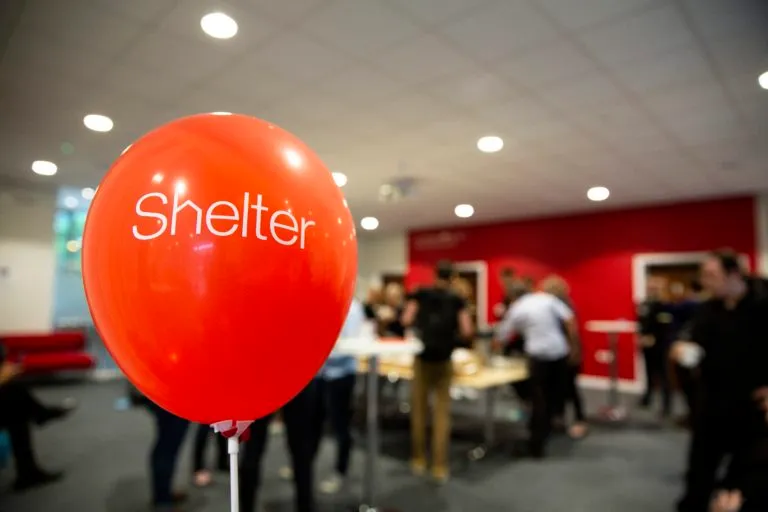What we’ve learnt from the Lead Worker/Peer Mentor programme
Published: by Guest blog

Jan Pusiak on evaluating the impact of the Lead Worker/Peer Mentor programme.
Hi. I’m Jan, the Learning and Evaluation Coordinator for Birmingham Changing Futures Together.
I began working on the programme in 2015, and since then I’ve seen so much learning come from the Lead Worker/Peer Mentor Service – it’s been fantastic. I’m really excited by the work that Shelter’s Continuation Strategy Team are doing, and it’s critical we share our learning with as many other organisations as possible.
During my time working with the LW/PM service, I’ve collected so much data from the clients, I feel as though I know them without ever having met the majority of them. I’m also aware that the Lead Workers and Peer Mentors probably have nightmares about me asking them for more and more information on the work they were doing, and how their actions were affecting their clients.
Evaluating the impact
To help evaluate the impact of the LW/PM service, we reviewed the clients’ use of services and interactions with organisations before they engaged with the LW/PM Service, and then continued to monitor this following their engagement. This included such data as the number of times they visited A&E, how many times they were convicted of a crime, how often they were evicted from their property, as well as the more planned and sustainable use of services such as interactions with the Community Mental Health Team and drug and alcohol services. The data spoke for itself. The initial results from the 2017 analysis showed a clear reduction in the use of crisis services, and an increase in the use of services tailored to support the client in the long term.
12-month comparisons of service use showed an 88% reduction in convictions and a 72% reduction in visits to A&E. These reductions were paired with a 300% increase in contacts with the Community Mental Health Teams. We repeated this research year on year with similar positive results being seen.
We also compared the results of the clients with a Peer Mentor against those without. Across all of the areas that we collected data, those clients with a Peer Mentor had better results.
Going behind the numbers
Having looked at the statistics, I naturally wanted to get to the reasons behind the numbers.
I spoke with several clients over the years about their lack of engagement with services prior to engaging with the LW/PM service, and they all had very similar messages. The clients didn’t trust services for numerous reasons, often historical and frequently not necessarily the fault of the service itself. They, therefore, wanted a new approach to engage with the services that supported them in their lives. This alternative approach arrived in the form of Peer Mentors that they could relate with, talk to, and begin to trust. The Peer Mentors were often the first people that the client had ever met that had lived a similar life to them and weren’t either still in the same boat or dead. The clients began engaging with the Peer Mentors and started their journey with the LWPM service.
Several clients talked to me about just how complicated and difficult it was accessing services when none of the services worked together in a coordinated manner. They were being sent to appointments all over the city, frequently with the appointments overlapping, and with no money to get to them anyway. Staff at services were also focussed on their particular area of expertise such as substance misuse or housing, and had very little knowledge about support services as a whole. Therefore, when a client had numerous areas they needed support with, it was left to them to sort it all out.
I think this was the major reason that so many clients spoke to me about the Lead Worker’s ability to view them holistically, and not just as a set of individual needs and problems that required solving. This Lead Worker approach ensured that they received all of the support they needed in one wrap-around package. Having small building blocks across every area of their lives enabled them to gradually move forward because their needs were complex and interrelated.
Being ready for support
One thing that surprised me when I was talking to the LW/PM clients was the fact that even if support was offered, sometimes they would refuse it, as they weren’t ready for it. I naively thought that if someone was offered support with a drug problem, they would jump at the chance. But clients spoke about needing to be in the right headspace to accept it and move on.
This was evidenced in the fact that several clients engaged with the LW/PM service, disengaged, and then reengaged further down the line when they were ready to accept support. Many clients disengaged on several occasions before committing to the service and moving forward successfully with their lives. For me, that really highlighted the importance of the services fitting around the individual and not expecting the individual to bend over backwards to fit the criteria of every service.
Through all of the research that took place over the five years of the LW/PM service, it’s crystal clear that there are many benefits from this approach that mainstream services can take on board to enhance the support that they give to their clients. And on a personal note, this programme has been a real eye-opener to the struggles faced by so many people living in our city today, and just how simple some of the solutions are.
The full reports mentioned in this blog can be found on the Birmingham Changing Futures Together website. For further details, please contact Jan Pusiak.
Read more about the Lead Worker/Peer Mentor service, or listen to Shelter’s new podcast series.
You might also be interested in Tara’s story – another one of our clients, who we supported as part of our Lead Worker/Peer Mentor programme.

Find out more about Birmingham Changing Futures Together service in partnership with Shelter, Birmingham Mind and Sifa Fireside.